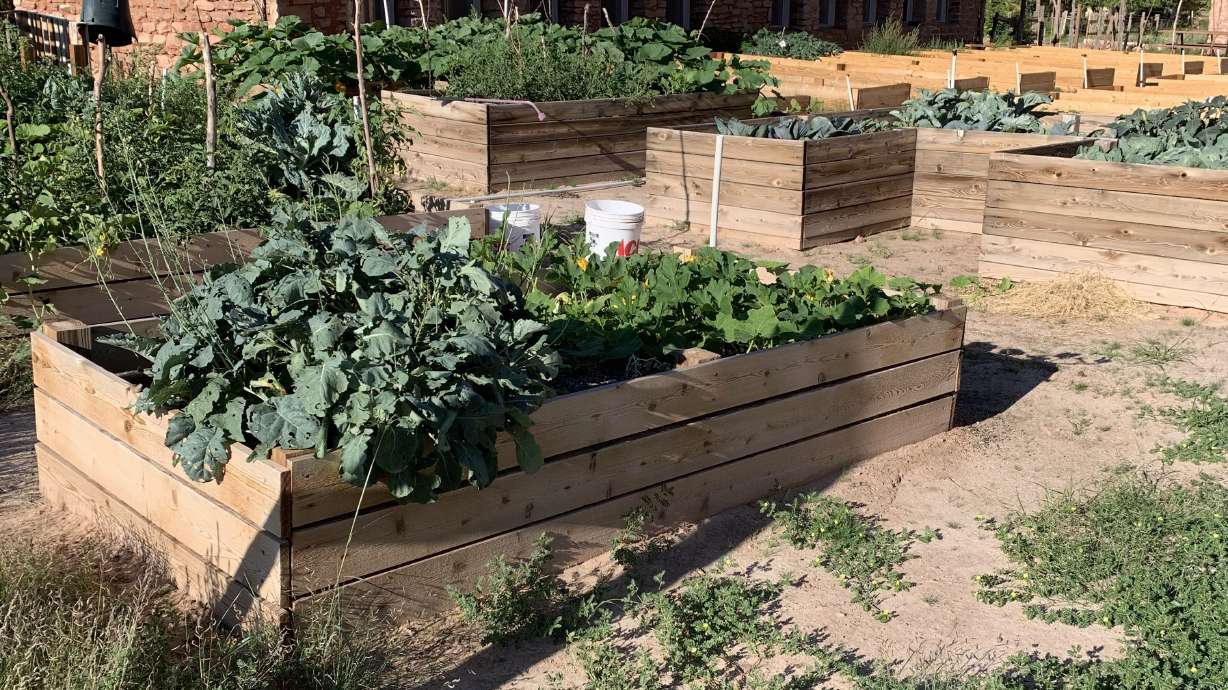Estimated read time: 3-4 minutes
This archived news story is available only for your personal, non-commercial use. Information in the story may be outdated or superseded by additional information. Reading or replaying the story in its archived form does not constitute a republication of the story.
LOGAN — Utah State University Extension has received a grant to fund programs that will enhance farming opportunities for refugee and Native American farmers in Utah.
The grant comes from the U.S. Department of Agriculture's National Institute of Food and Agriculture.
"Strengthening and growing the pipeline of the next generation of farmers and ranchers is vital to the continued success of American agriculture," said Carrie Castille, director of the institute. "We recognize that beginning farmers and ranchers have unique needs for education, training and technical assistance. Their success, especially in the first 10 years, often hinges on access to reliable, science-based information and the latest educational resources so they can improve their operations' profitability and sustainability long term."
Specifically, the grant will expand three existing incubator farms in Utah and help create two new farms.
"Incubator farms are essentially plots of land where people who are interested in farming can start a farming business or start farming without having to obtain farmland of their own," said Kynda Curtis, professor of agriculture and food marketing specialist at Utah State University.
Nigariura Shire is a refugee farmer from Tanzania who has grown corn, beets, carrots, green beans and tomatoes, among other produce, for his family along with selling the goods for the last 15 years.
"Many things I grow (here), I like," Shire said.
USU Extension is partnering with the Salt Lake City International Rescue Committee's New Roots Program to support the incubator farms on Redwood Road in Salt Lake County and Wheadon Farm Regional Park in Draper and partnering with the Cache Refugee and Immigrant Connection to support the farm in Logan.
"Those three farms are all for refugee communities — in Salt Lake they're primarily for refugees from African nations (and) in Logan they're primarily for refugees from Southeast Asian locations," Curtis said.
The plots of land that are available to be farmed can be as small as a backyard planter box or potentially up to two acres. The grant, which provides $600,000 over a three-year time span, provides all of the materials refugees need for farming as well as staff through the Salt Lake International Rescue Committee, the Cache Refugee and Immigrant Connection and USU Extension to provide technical assistance workshops and training with farmers throughout the year.
"We have people who are on the incubator farms for several years. Our hope is to move them onto their own plot of land eventually," Curtis added. "That's the end goal — for them to establish their own farming operations on a rented or their own piece of land.
The upcoming plans for the two new incubator farms include a small incubator farm in Bluff, San Juan County, where USU Extension will be starting a community-supported agriculture program for farmers to sell their yields, along with starting a new farm south of Bluff on the Navajo Nation near Mexican Water, Arizona.
"A lot of these farmers use their yields to help supply food to themselves and their families and their communities, so there's a large positive nutritional and health impact as well as an economic impact from the sales they have from their production," Curtis said.










